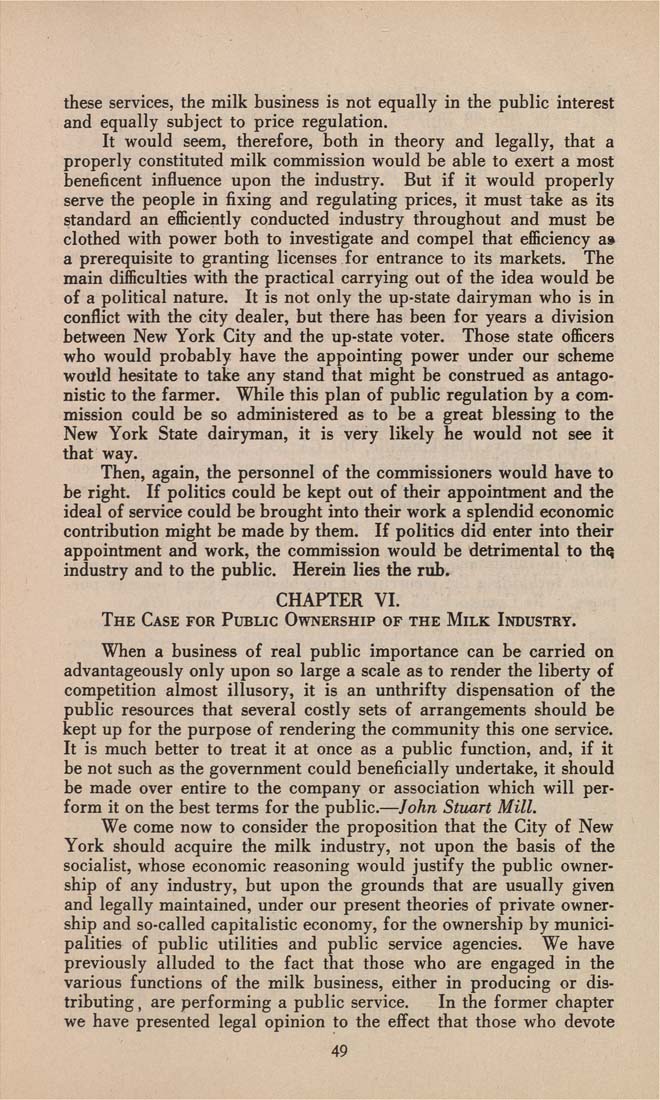these services, the milk business is not equally in the public interest
and equally subject to price regulation.
It would seem, therefore, both in theory and legally, that a
properly constituted milk commission would be able to exert a most
beneficent influence upon the industry. But if it would properly
serve the people in fixing and regulating prices, it must take as its
standard an efficiently conducted industry throughout and must be
clothed with power both to investigate and compel that efficiency a»
a prerequisite to granting licenses for entrance to its markets. The
main difficulties with the practical carrying out of the idea would be
of a political nature. It is not only the up-state dairyman who is in
conflict with the city dealer, but there has been for years a division
between New York City and the up-state voter. Those state officers
who would probably have the appointing power under our scheme
would hesitate to take any stand that might be construed as antago¬
nistic to the farmer. While this plan of public regulation by a com¬
mission could be so administered as to be a great blessing to the
New York State dairyman, it is very likely he would not see it
that way.
Then, again, the personnel of the commissioners would have to
be right. If politics could be kept out of their appointment and the
ideal of service could be brought into their work a splendid economic
contribution might be made by them. If politics did enter into their
appointment and work, the commission would be detrimental to th^
industry and to the public. Herein lies the rub.
CHAPTER VI.
The Case for Public Ownership of the Milk Industry.
When a business of real public importance can be carried on
advantageously only upon so large a scale as to render the liberty of
competition almost illusory, it is an unthrifty dispensation of the
public resources that several costly sets of arrangements should be
kept up for the purpose of rendering the community this one service.
It is much better to treat it at once as a public function, and, if it
be not such as the government could beneficially undertake, it should
be made over entire to the company or association which will per¬
form it on the best terms for the public.—John Stuart Mill.
We come now to consider the proposition that the City of New
York should acquire the milk industry, not upon the basis of the
socialist, whose economic reasoning would justify the public owner¬
ship of any industry, but upon the grounds that are usually given
and legally maintained, under our present theories of private owner¬
ship and so-called capitalistic economy, for the ownership by munici¬
palities of public utilities and public service agencies. We have
previously alluded to the fact that those who are engaged in the
various functions of the milk business, either in producing or dis¬
tributing , are performing a public service. In the former chapter
we have presented legal opinion to the effect that those who devote
49
|








